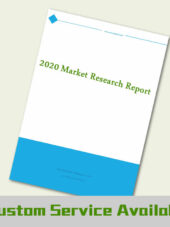Description
The Micro, Small, and Medium Enterprise (MSME) play a pivotal role in the Indian economy. In FY 2021, the MSME industry offered employment to more than 111 million people and was the second-largest employment-generating sector in India (agriculture is the largest).
The sector contributes ~29% to the country’s GDP, which is expected to reach 50% by 2025. The industry’s financing needs depend upon the nature, size, customer segments, and stage of development. Financial institutions have limited their lending exposure to the Indian MSME industry due to the high cost of services, the small ticket size of loans, and the limited ability of MSMEs to offer immovable collaterals.
In 2020, the overall credit gap in the MSME industry stood at ~INR 14.53 Trn.
Debt Demand of the MSME Sector in India:
The overall debt demand by MSMEs amounted to ~ INR 105.50 Trn in 2020. In 2020, the estimated addressable debt demand was INR 44.66 Trn. Approximately 47% of the debt demand is non-addressable because of the presence of sick enterprises, MSMEs with limited operational capacities, and enterprises that voluntarily exclude themselves from formal financial services, as well as other factors.
Credit Supply to the MSME Sector in India:
In 2020, the overall credit supply, including both the formal and informal sectors, amounted to INR 110.40 Trn. The formal and the informal sectors contribute ~22.72% and ~77.28% to the overall credit supply, respectively.
Impact of COVID-19 on MSME Financing Market
Small businesses are the most vulnerable to unexpected crises like COVID-19 because of their size, scale of business operations, and limited financial management resources. However, the government has announced several policy measures to minimize losses.
The announcement of a targeted long-term repo operation (TLTRO) of INR 500 Bn, a grant of INR 3 Tn collateral-free automatic loans, INR 200 Bn subordinated debt to stressed MSMEs, and a complete ban on global tenders for procurement of goods and services for up to INR 2 Bn are a few of the crucial policy mandates.





